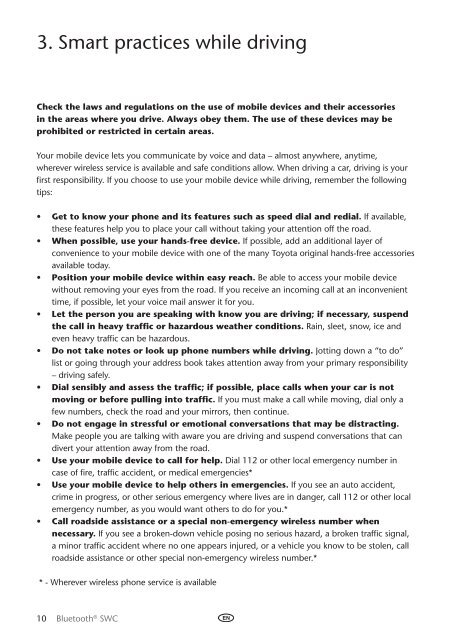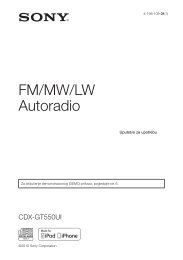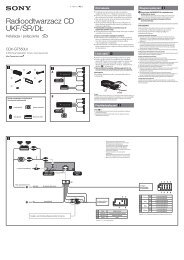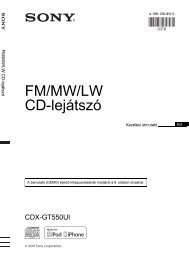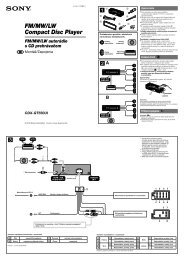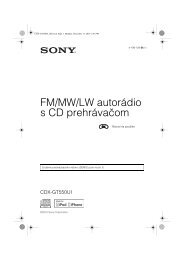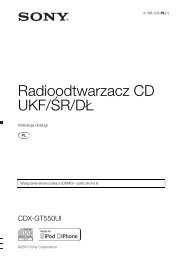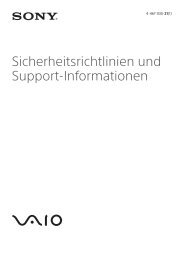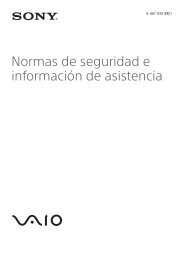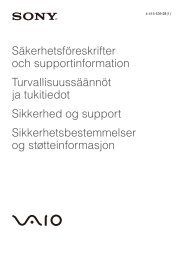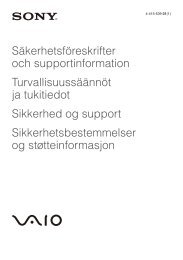Toyota Bluetooth SWC English Russian Lithuanian Latvian Estonian - PZ420-00293-BE - Bluetooth SWC English Russian Lithuanian Latvian Estonian - mode d'emploi
Toyota Bluetooth SWC English Russian Lithuanian Latvian Estonian - PZ420-00293-BE - Bluetooth SWC English Russian Lithuanian Latvian Estonian - mode d'emploi
Toyota Bluetooth SWC English Russian Lithuanian Latvian Estonian - PZ420-00293-BE - Bluetooth SWC English Russian Lithuanian Latvian Estonian - mode d'emploi
Create successful ePaper yourself
Turn your PDF publications into a flip-book with our unique Google optimized e-Paper software.
3. Smart practices while driving<br />
Check the laws and regulations on the use of mobile devices and their accessories<br />
in the areas where you drive. Always obey them. The use of these devices may be<br />
prohibited or restricted in certain areas.<br />
Your mobile device lets you communicate by voice and data – almost anywhere, anytime,<br />
wherever wireless service is available and safe conditions allow. When driving a car, driving is your<br />
first responsibility. If you choose to use your mobile device while driving, remember the following<br />
tips:<br />
• Get to know your phone and its features such as speed dial and redial. If available,<br />
these features help you to place your call without taking your attention off the road.<br />
• When possible, use your hands-free device. If possible, add an additional layer of<br />
convenience to your mobile device with one of the many <strong>Toyota</strong> original hands-free accessories<br />
available today.<br />
• Position your mobile device within easy reach. Be able to access your mobile device<br />
without removing your eyes from the road. If you receive an incoming call at an inconvenient<br />
time, if possible, let your voice mail answer it for you.<br />
• Let the person you are speaking with know you are driving; if necessary, suspend<br />
the call in heavy traffic or hazardous weather conditions. Rain, sleet, snow, ice and<br />
even heavy traffic can be hazardous.<br />
• Do not take notes or look up phone numbers while driving. Jotting down a “to do”<br />
list or going through your address book takes attention away from your primary responsibility<br />
– driving safely.<br />
• Dial sensibly and assess the traffic; if possible, place calls when your car is not<br />
moving or before pulling into traffic. If you must make a call while moving, dial only a<br />
few numbers, check the road and your mirrors, then continue.<br />
• Do not engage in stressful or emotional conversations that may be distracting.<br />
Make people you are talking with aware you are driving and suspend conversations that can<br />
divert your attention away from the road.<br />
• Use your mobile device to call for help. Dial 112 or other local emergency number in<br />
case of fire, traffic accident, or medical emergencies*<br />
• Use your mobile device to help others in emergencies. If you see an auto accident,<br />
crime in progress, or other serious emergency where lives are in danger, call 112 or other local<br />
emergency number, as you would want others to do for you.*<br />
• Call roadside assistance or a special non-emergency wireless number when<br />
necessary. If you see a broken-down vehicle posing no serious hazard, a broken traffic signal,<br />
a minor traffic accident where no one appears injured, or a vehicle you know to be stolen, call<br />
roadside assistance or other special non-emergency wireless number.*<br />
* - Wherever wireless phone service is available<br />
10 <strong>Bluetooth</strong> ® <strong>SWC</strong>


